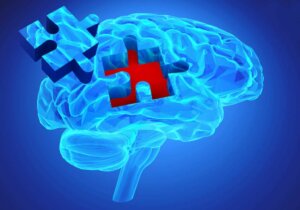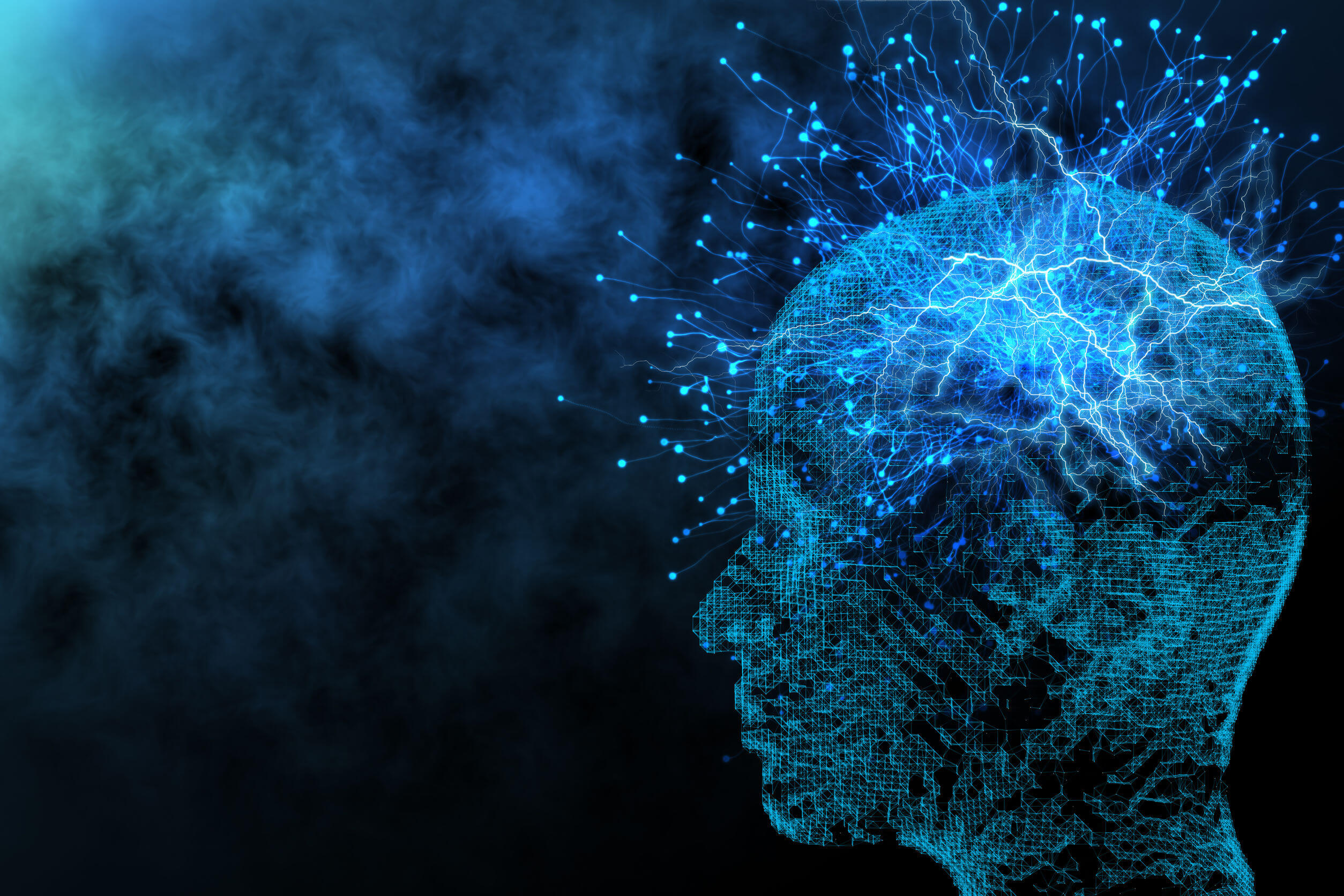8 Curiosities about Memory, According to Science

We all know what it is, but not everyone will know these curiosities about memory that science has revealed to us. Surely, at some point, you have wondered just how much information your brain can store or how memories that you thought were forgotten come to you when an old song plays. Well, this is part of those curiosities.
Memory is a complex brain function that can be exercised. When adulthood arrives it’s possible for some brain structures to be affected. There’s a neuronal loss and a decrease in the production of neurotransmitters, which causes forgetfulness. However, the truth is that our life is imprinted in our memory as an indelible mark.
Memory types
For a long time, it was thought that memory was housed in a specific place in the brain. However, some scientific studies found that memory is taken care of by the functioning of several different brain structures. Thus, people began to talk about different types of memory, among which we highlight:
- Working
- Sensory
- Motor
- Viso-spatial
- Verbal
- Explicit and implicit
Phases of memory

Have you ever wondered how information remains in memory? Well, according to research, information must go through three phases, or cognitive processes, before it can be recorded and be made available for when it’s needed. This means that the processes are repeated in order to save and search our memory.
When there’s a failure in any of these three phases of memory, that’s when forgetfulness or trouble remembering things occur:
- Coding: This stage is where we analyze, synthesize, or categorize the information to incorporate it into memory.
- Storage: This is when the information that we encode stays in the corresponding brain structure, according to the type of information: numbers, music, or images.
- Recovery: This is the process that occurs when we need to remember the information that we’ve encoded and stored in the brain.
The 9 curiosities about memory, according to science
Well, now you know a little more about how your memory works. However, there are plenty of fascinating facts that you possibly don’t know, and we’re going to tell you about them now.
1. It has its own principle of economy
How much information do you think your brain encodes and stores in a typical day? Without a doubt, a lot. It’s for this reason that it has been proven that memory has a principle of economy when storing that information. We’re speaking of short or long term memory.
Short-term memory is one that we retain for just a short time, as its name implies. It’s immediate and focuses on momentary stimuli. One example here are the errands we run – you memorize what you need to buy or do, but, when you’ve completed the task, you usually forget it.
This doesn’t mean that this information was erased from your memory. It’s simply that your brain placed it in an inaccessible area, because it recognizes that it isn’t vital information.
On the other hand, long-term memory is considered to be a complete brain system that acts to store relevant information indefinitely. An example of this are the memories that allow us to know who we are, where we live, what language we speak, and professional knowledge, for example.
2. Never forget
As we mentioned before, the information that we encode and store in the brain is never forgotten. Depending on the type of information, it’s located in a more accessible or more consolidated area. So, you may wonder what happens to people who constantly forget things.
Well, these people can suffer from the phenomenon of forgetfulness, which refers to a difficulty to retrieve information stored in their brain, either due to failures in brain structures, as in the case of Alzheimer’s, or it may be due to a lack of attention, such as when you forget the name of someone you just met.
3. It’s affected by stress
Stress is one of the conditions that most affects the world population, as well as having a negative impact on our physical, mental, and emotional health. Our brain is no exception, it too is affected. A study has pointed out that stress causes learning and memory problems. Additionally, it disrupts sleep and can trigger other diseases.
This same study indicates that stress increases or decreases the first stage of the alarm reaction. Also, the processes that occur in the basolateral amygdala and in the hippocampus due to this condition also impair memory.
4. Fake memories?
Only people with hypermnesia are able to remember past events exactly as they happened. The rest of the people aren’t so blessed in this sense. This means that when you recall a very distant memory, many details may not be entirely accurate.
This phenomenon is known as false memories and they have troubled scientists who are dedicated to studying this cognitive process for decades. This is a curious fact because few realize which of their memories are real or false, because according to studies these false memories are very similar to the true ones.
5. It’s closely related to context and emotions
Memory is linked to our emotions and the context that surrounds us. They depend in large part on what stimulates the memory to be triggered.
An example of this is when you listen to a song that you liked in childhood but had forgotten about it. A memory trace is activated and you can even remember, in addition to the lyrics of the song, how it made you feel at that time.
6. Hypermnesia

As we have mentioned, most of us have a selective memory capacity and we tend to forget details that we consider not to be too necessary. In addition to that, when needed, it rebuilds some resources to fill up the gaps.
However, there are some people (not very many) who have a higher capacity. They can recall their memories with great precision and detail. Those with hypermnesia have the amazing ability to encode, store and retrieve information very quickly.
The curious thing about this is that these people can apply this condition almost perfectly to narrate their lives, which is known as autobiographical memory, but the same doesn’t happen with other memories.
7. Cryptomnesia
Have you ever had information about something, but don’t know where you got it from? If the answer is yes, be careful! You could be plagiarizing someone by using this information as your own.
It turns out that there are people who suffer from cryptomnesia, a condition in which the patient doesn’t know that they have certain information about something, neither do they remember where it came from.
It’s confusing, but we’re talking here about information that has been recorded in the brain and that the person doesn’t know how it got there. This information remains hidden and, when the memory arrives, it’s easy for people to confuse it with an idea of their own, leading many people to commit plagiarism without knowing it.
8. The Mandela effect
Well, we’ve reached the last in the list of curiosities about memory, and it’s one that affected many people. We’re talking about a kind of false collective memory, known as the Mandela effect.
It was given this name because it was discovered when several people were found who shared the false memory that Nelson Mandela had died in prison, which, of course, didn’t happen.
Did you recognize any of these curiosities about memory?
Perhaps some of these science-proven memory trivia are familiar to you, others not so much. This is because it’s impossible to be aware of whether memories are real or whether they’re things our brain has made up.
All this is because, as we explained at the beginning, the brain and the structures that are involved in memory are very complex and increasingly surprise science.
We all know what it is, but not everyone will know these curiosities about memory that science has revealed to us. Surely, at some point, you have wondered just how much information your brain can store or how memories that you thought were forgotten come to you when an old song plays. Well, this is part of those curiosities.
Memory is a complex brain function that can be exercised. When adulthood arrives it’s possible for some brain structures to be affected. There’s a neuronal loss and a decrease in the production of neurotransmitters, which causes forgetfulness. However, the truth is that our life is imprinted in our memory as an indelible mark.
Memory types
For a long time, it was thought that memory was housed in a specific place in the brain. However, some scientific studies found that memory is taken care of by the functioning of several different brain structures. Thus, people began to talk about different types of memory, among which we highlight:
- Working
- Sensory
- Motor
- Viso-spatial
- Verbal
- Explicit and implicit
Phases of memory

Have you ever wondered how information remains in memory? Well, according to research, information must go through three phases, or cognitive processes, before it can be recorded and be made available for when it’s needed. This means that the processes are repeated in order to save and search our memory.
When there’s a failure in any of these three phases of memory, that’s when forgetfulness or trouble remembering things occur:
- Coding: This stage is where we analyze, synthesize, or categorize the information to incorporate it into memory.
- Storage: This is when the information that we encode stays in the corresponding brain structure, according to the type of information: numbers, music, or images.
- Recovery: This is the process that occurs when we need to remember the information that we’ve encoded and stored in the brain.
The 9 curiosities about memory, according to science
Well, now you know a little more about how your memory works. However, there are plenty of fascinating facts that you possibly don’t know, and we’re going to tell you about them now.
1. It has its own principle of economy
How much information do you think your brain encodes and stores in a typical day? Without a doubt, a lot. It’s for this reason that it has been proven that memory has a principle of economy when storing that information. We’re speaking of short or long term memory.
Short-term memory is one that we retain for just a short time, as its name implies. It’s immediate and focuses on momentary stimuli. One example here are the errands we run – you memorize what you need to buy or do, but, when you’ve completed the task, you usually forget it.
This doesn’t mean that this information was erased from your memory. It’s simply that your brain placed it in an inaccessible area, because it recognizes that it isn’t vital information.
On the other hand, long-term memory is considered to be a complete brain system that acts to store relevant information indefinitely. An example of this are the memories that allow us to know who we are, where we live, what language we speak, and professional knowledge, for example.
2. Never forget
As we mentioned before, the information that we encode and store in the brain is never forgotten. Depending on the type of information, it’s located in a more accessible or more consolidated area. So, you may wonder what happens to people who constantly forget things.
Well, these people can suffer from the phenomenon of forgetfulness, which refers to a difficulty to retrieve information stored in their brain, either due to failures in brain structures, as in the case of Alzheimer’s, or it may be due to a lack of attention, such as when you forget the name of someone you just met.
3. It’s affected by stress
Stress is one of the conditions that most affects the world population, as well as having a negative impact on our physical, mental, and emotional health. Our brain is no exception, it too is affected. A study has pointed out that stress causes learning and memory problems. Additionally, it disrupts sleep and can trigger other diseases.
This same study indicates that stress increases or decreases the first stage of the alarm reaction. Also, the processes that occur in the basolateral amygdala and in the hippocampus due to this condition also impair memory.
4. Fake memories?
Only people with hypermnesia are able to remember past events exactly as they happened. The rest of the people aren’t so blessed in this sense. This means that when you recall a very distant memory, many details may not be entirely accurate.
This phenomenon is known as false memories and they have troubled scientists who are dedicated to studying this cognitive process for decades. This is a curious fact because few realize which of their memories are real or false, because according to studies these false memories are very similar to the true ones.
5. It’s closely related to context and emotions
Memory is linked to our emotions and the context that surrounds us. They depend in large part on what stimulates the memory to be triggered.
An example of this is when you listen to a song that you liked in childhood but had forgotten about it. A memory trace is activated and you can even remember, in addition to the lyrics of the song, how it made you feel at that time.
6. Hypermnesia

As we have mentioned, most of us have a selective memory capacity and we tend to forget details that we consider not to be too necessary. In addition to that, when needed, it rebuilds some resources to fill up the gaps.
However, there are some people (not very many) who have a higher capacity. They can recall their memories with great precision and detail. Those with hypermnesia have the amazing ability to encode, store and retrieve information very quickly.
The curious thing about this is that these people can apply this condition almost perfectly to narrate their lives, which is known as autobiographical memory, but the same doesn’t happen with other memories.
7. Cryptomnesia
Have you ever had information about something, but don’t know where you got it from? If the answer is yes, be careful! You could be plagiarizing someone by using this information as your own.
It turns out that there are people who suffer from cryptomnesia, a condition in which the patient doesn’t know that they have certain information about something, neither do they remember where it came from.
It’s confusing, but we’re talking here about information that has been recorded in the brain and that the person doesn’t know how it got there. This information remains hidden and, when the memory arrives, it’s easy for people to confuse it with an idea of their own, leading many people to commit plagiarism without knowing it.
8. The Mandela effect
Well, we’ve reached the last in the list of curiosities about memory, and it’s one that affected many people. We’re talking about a kind of false collective memory, known as the Mandela effect.
It was given this name because it was discovered when several people were found who shared the false memory that Nelson Mandela had died in prison, which, of course, didn’t happen.
Did you recognize any of these curiosities about memory?
Perhaps some of these science-proven memory trivia are familiar to you, others not so much. This is because it’s impossible to be aware of whether memories are real or whether they’re things our brain has made up.
All this is because, as we explained at the beginning, the brain and the structures that are involved in memory are very complex and increasingly surprise science.
- Caitlin Aamodt. El efecto Mandela y los falsos recuerdos compartidos. Letras libres, ISSN 1578-4312, Nº. 187, 2017, págs. 56-57. Disponible en: https://www.letraslibres.com/espana-mexico/revista/el-efecto-mandela-y-los-falsos-recuerdos-compartidos
- Nina Gramunt Fombuena. Normalización y validación de un test de memoria en envejecimiento normal, deterioro cognitivo leve y enfermedad de Alzheimer. Universitat Ramon Llull. Disponible en: https://www.tdx.cat/bitstream/handle/10803/9261/NinaGramunt-tesis.pdf?sequence=1&isAllowed=y
- La memoria, programa de estimulación y mantenimiento cognitivo. Promoción de la solicitud en personas mayores. Instituto de Salud Pública. Disponible en: https://fiapam.org/wp-content/uploads/2012/10/maroto-memoria-01.pdf
- Arnoldo Téllez López. La memoria humana: revisión de los hallazgos recientes y propuesta de un modelo neuropsicológico. Universidad Autónoma de Nuevo León, 2003. Disponible en: http://eprints.uanl.mx/1514/1/1020149160.PDF
- Morgado Bernal, Ignacio (2005). Psicobiología del aprendizaje y la memoria. CIC. Cuadernos de Información y Comunicación, (10),221-233.[fecha de Consulta 17 de Marzo de 2021]. ISSN: 1135-7991. Disponible en: https://www.redalyc.org/articulo.oa?id=935/93501010
- Adela Garzón, Julio Seoane. La memoria desde el procesamiento de información. Psicología cognitiva y procesamiento de la información. Disponible en: https://www.uv.es/seoane/publicaciones/Garzon-Seoane%201982%20La%20Memoria%20desde%20el%20Procesamiento%20de%20Informacion.pdf
- Escobar A, Gómez GB. Estrés y memoria. Rev Mex Neuroci. 2006;7(1):8-14.
- Ambrocio Mojardín-Heráldez. Origen y manifestaciones de las falsas memorias. Acta colombiana de psicología. 11 (1): 37-43, 2008. Disponible en: http://www.scielo.org.co/pdf/acp/v11n1/v11n1a04.pdf
- Cuevas Remigio, Luis Fernando (2015). HIPERMNESIA DE RECONOCIMIENTO A TRAVÉS DE LA CONSTRUCCIÓN DE IMÁGENES MENTALES: UNA INTERPRETACIÓN A PARTIR DE LA COGNICIÓN CORPORIZADA. Enseñanza e Investigación en Psicología, 20(2),227-237.[fecha de Consulta 17 de Marzo de 2021]. ISSN: 0185-1594. Disponible en: https://www.redalyc.org/articulo.oa?id=292/29242799013
- Daniel R. Martínez. La clasificación de los trastornos de la conciencia. Rev. Asoc. Esp. Neuropsiq. 2019; 39(135): 33-49. doi: 10.4321/S0211-57352019000100003
Este texto se ofrece únicamente con propósitos informativos y no reemplaza la consulta con un profesional. Ante dudas, consulta a tu especialista.







